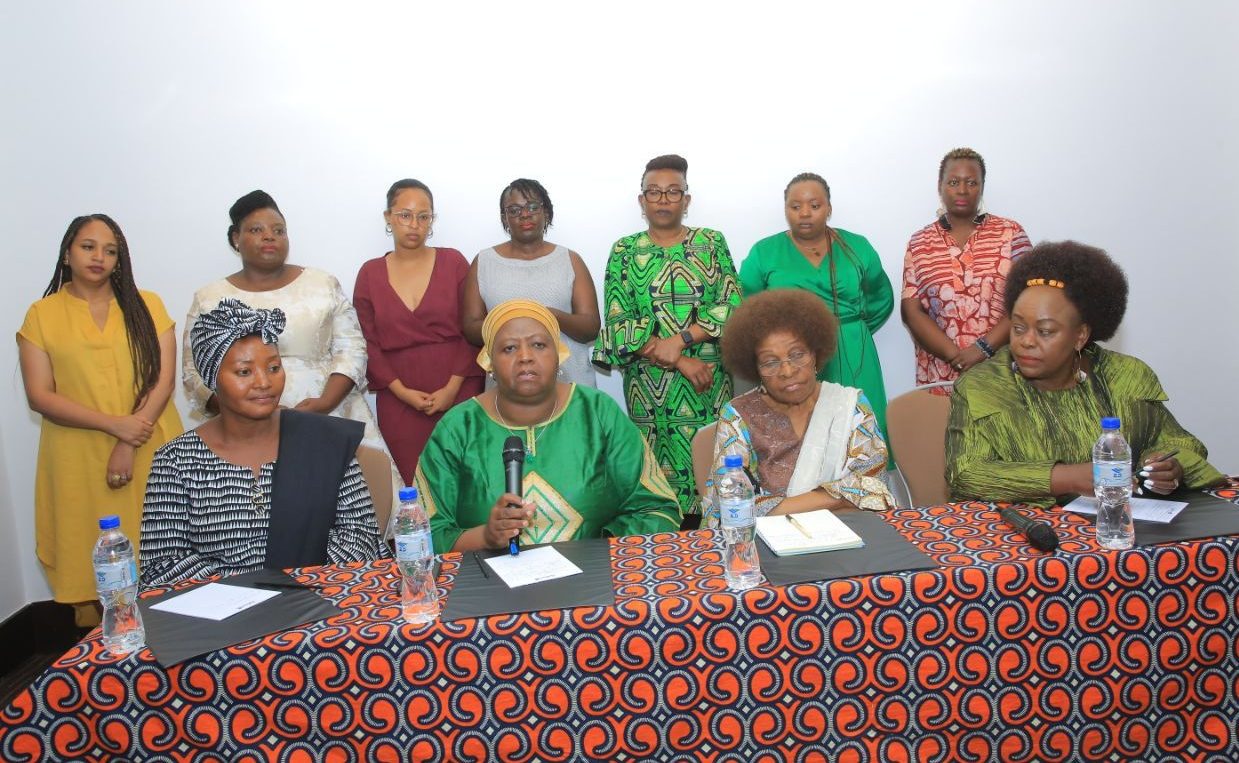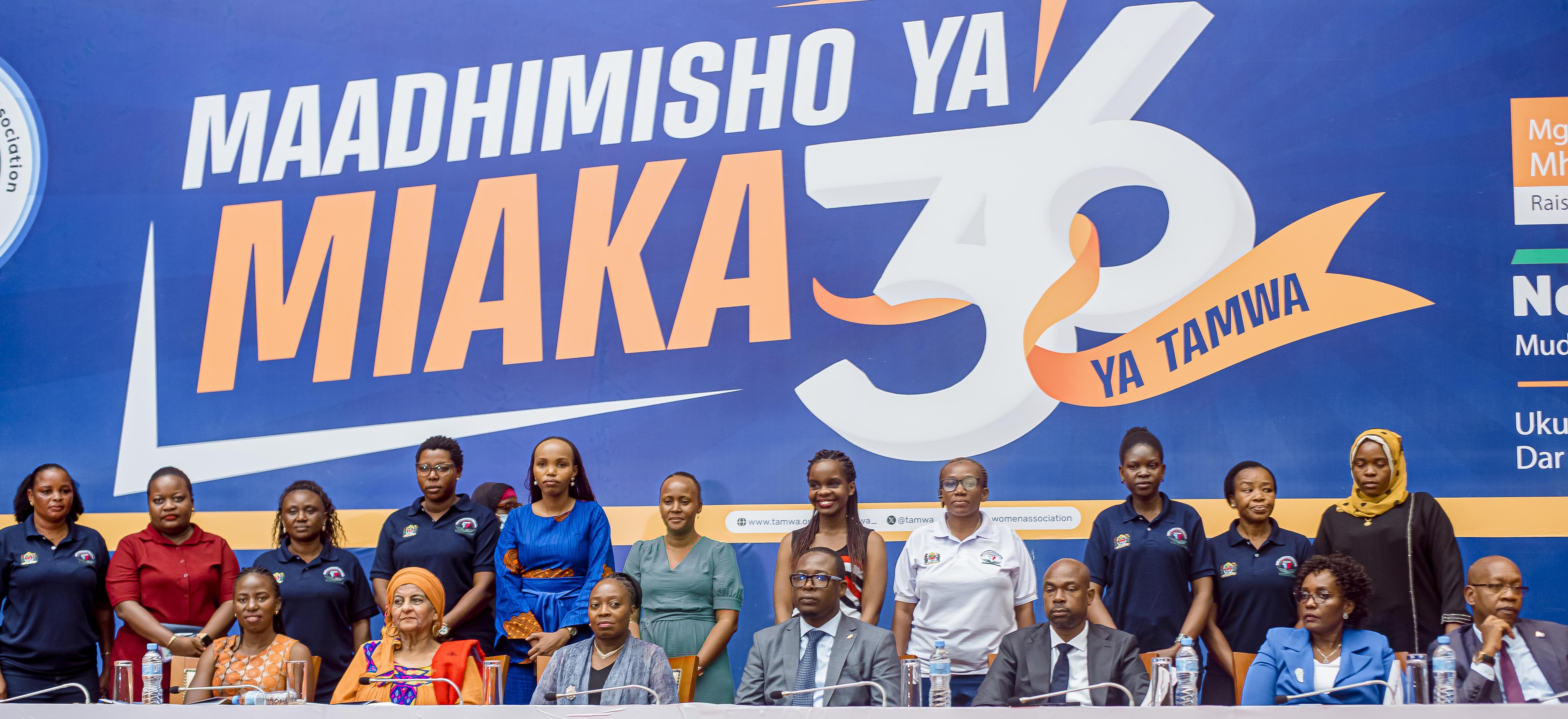
African Women Must Lead in Political Spaces
In the arena of political participation, African women in all their diversities are often perceived as “mere” voters “unsuitable” to lead key political processes. Seemingly, African politics has been synonymized as a male-oriented and male-dominated enterprise, yet women are integral players in the mass mobilisation and campaigns agenda setting.
“As an African, I think it is very important for us to look at Agenda 2063 of the African Union and have shared values of inclusive governance fall into place.” said Dr. Tobe Sharamo, the incumbent IDEA and West Asia Regional Director. “Women in Political Participation gives us an opportunity to have implement strategic partnership in Africa,
It is this conviction that is the heartbeat of the Women in Political Participation in Africa (WPP) project that is supported by International IDEA and the Embassy of Sweden in Addis Ababa. The project encompasses six partner organisations: The African Women’s Development and Communication Network (FEMNET), The Forum for African Women Educationalists (FAWE), Gender Links, Universite Cheikh Anta Diop’s Gender Laboratory (IFAN), Padare/Enkundleni Men’s Forum on Gender and Women and Law Southern Africa (WLSA).
The novel project is in its second phase of implementation and its strategy is deliberate about changing the course of political leadership and governance in Botswana, Côte d’Ivoire, Democratic Republic of Congo, Eswatini, Kenya, Senegal, Tanzania and Zimbabwe with a scale-up to regional and global policy spaces towards enhancing gender equality and women’s political participation in line with existing frameworks such as the Maputo Protocol and the United Nation’s Sustainable Development Goals.
“For us to ensure women’s meaningful participation and equal opportunities in decision making, we must institute a deliberate effort in amplifying women’s voices in the political processes, push for gender-responsive policies and hold governments accountable on legal frameworks on gender equality,” remarked Dorothy Otieno, FEMNET’s WPP Coordinator and expert in transformational leadership.
” We are committed to ensure that African women are empowered to be transformative agents of positive change in our political arena, said Emebet Regassa the Regional Gender Advisor in the Embassy of Sweden in Addis Ababa.
Speaking with the same tone, Rama Kubi, the Executive Director, Gender Links said, “We are intentional about strengthening the capacity of African women to engage in politics.” Ms. Kubi insisted that African women should be granted the opportunity to constructively contribute to the democratic process and should not be limited or undermined.
Retrospective to her sentiments, intentionality is the only move that will propel African governments to be explicit about affirmative action interventions particularly in political institutions and processes to favour women’s participation.
Taking into consideration that we are only seven years shy from reviewing the Sustainable Development Goals (SDGs), Africa needs to embrace women’s leadership as a norm. Whereas it has been widely argued and demonstrated empirically that the gender equality is progressive, the reality at hand shows that there are impediments that warrant attention and revision.
While addressing the meeting, Mildred Ngesa, a renown Pan-African Media and Communications Specialist said, “Women’s participation in African politics will start making sense when we first decry the persisting litany of patriarchal manels sitting at the African Union.” She insisted that “Women deserve to occupy those top seats just as much as the men!”
Pegged on this assertion, it is clear that African women’s participation in politics is still decades behind schedule. The Africa Barometer 2021, notes that women’s political participation in Africa accounts for only 24% with countries such as Nigeria trailing at 6%.
This year alone, over 20 African countries; Benin, Central African Republic, Chad, Comoros, Côte d’Ivoire, Djibouti, Egypt, Eswatini, Gabon, Ghana, Guinea, Guinea-Bissau, Madagascar, Liberia, Libya, Madagascar, Mali, Mozambique, Nigeria, Sierra Leone, Somali, South Sudan, Togo and Zimbabwe are gearing for elections in a political arena that superficially address gender equality.
In seeking to rectify this anomaly, we should first start by normalizing inclusivity to ensure that we accommodate all African women and girls in all their diversities. For women to fully engage in the political process they must be given equal opportunities in the election process and also in the decision-making process.
This article was written and compiled by Imali Ngusale, i.ngusale@femnet.or.ke and Dorothy Otieno via d.otieno@femnet.or.ke for more information on the Women in Political Participation contact Dorothy Otieno.
Related Tags
Related Posts
Sawubona Sisters: Rise Up and Redefine Power!
A clarion call echoed across the Pan African Pre-Sawubona leadership meeting in Addis Ababa, igniting a renewed flame
Learn MoreCelebrating 36 years of Advancing the Feminism through Media
Thirty-Six years ago, thirteen audacious pan- African feminists came together to speak truth to power. Their unabated voices
Learn More

